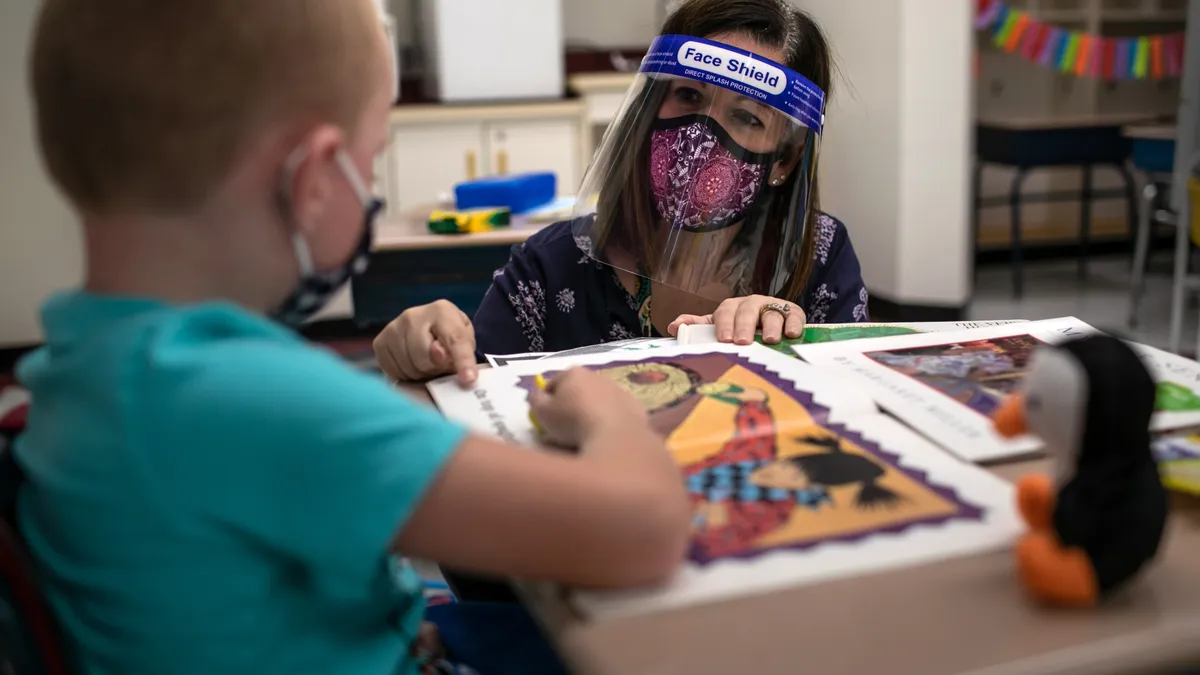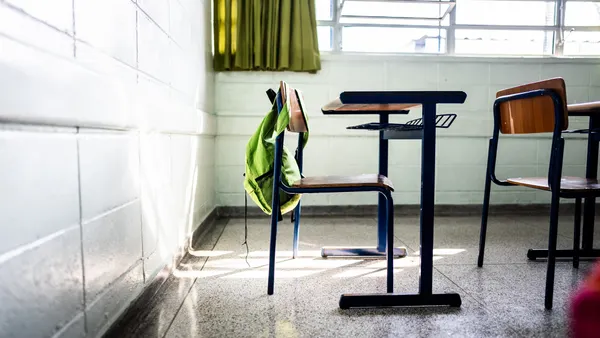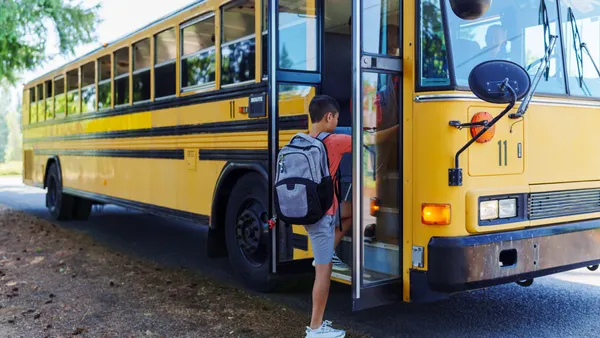Dive Brief:
-
Schools need to take ownership in addressing the mental health needs of all students, and though they should work with community partners to meet students’ needs, they shouldn’t totally rely on contracted services, said panelists Tuesday at the virtual Special Education Legislative Summit, hosted by the Council for Exceptional Children and the Council of Administrators of Special Education.
-
Outsourcing all mental health supports can lead to a fragmented program, the panelists said, suggesting instead that schools should focus on strong collaborations with outside agencies and increasing staff capacity to address comprehensive mental health programs.
-
In addition to increasing the number of counselors, psychologists and social workers, and defining administrative roles for oversight, schools should also plan for long-term financial investments in student and staff mental well-being.
Dive Insight:
Schools are feeling a sense of urgency in how they plan for and administer mental health services to students — many of whom are dealing with trauma due to the pandemic, racial unrest and other stresses. Responding to students’ mental health needs cannot be delayed, said panelist Byron McClure, a school psychologist at Anacostia High School in Washington, D.C.
“We don't have the luxury of waiting or admiring the problem,” McClure said.
While there is an urgent need to put practices in place, schools should be cautious of “single-shot solutions” that assume one certain intervention will address the challenges all students face, said panelist Kelly Vaillancourt Strobach, director of policy and advocacy for the National Association of School Psychologists. She also cautioned school staffs not to assume student mental health struggles are a result of COVID-19.
Having a mental health infrastructure that includes access to multi-tiered systems of support for student interventions, plans for sustained funding, and staff capacity for direct services and oversight will help schools organize a comprehensive mental health approach, Vaillancourt Strobach said.
Panelists also offered four best practices recommendations.
-
Make data-driven decisions. In order to appropriately identify students who may need more intensive supports, schools will need to have a system on data collection and analysis.
As administrators look more broadly at creating positive school cultures and equitable practices, data analysis is also critical for remedying disproportionality in discipline, course offerings and special education referrals, said Amanda Fitzgerald, assistant deputy executive director of the American School Counselor Association. -
Continue proven practices started during the pandemic. Because of school closures due to the pandemic, school counseling and psychology services were conducted through video conferencing. Because both school staffs and families liked the convenience of the remote services, it’s an approach that will likely continue in conjunction with in-person services, said Sharon Hoover, co-director of the National Center for School Mental Health.
Additionally, during the pandemic states expanded telehealth Medicaid reimbursements to schools for mental health services. That’s a promising trend for school budgets, Fitzgerald said. -
Keep intensive supports on campus. For students who may need more personalized and frequent mental health supports, such as those offered in tier II and tier III in an MTSS framework, schools can contract with professional experts to provide those services on campus with support from school and district personnel, Hoover said.
“We know young people are much more likely to initiate and complete mental health treatment when it's offered in the school building,” she said. -
Don’t be afraid to hire. There is a need for more school psychologists, counselors and social workers. Even in schools that have these professionals, there is often too high of a student ratio to be able to fulfill all the needs, the panelists said.
Emergency stimulus funding has provided schools with a boost of resources, and districts should consider using those dollars to hire more professionals to meet students’ needs — even if it’s just one or two additional staff members, Vaillancourt Strobach said.
“Your goal really should be making progress towards that ratio,” she said.
Additionally, she suggested school leadership should understand that while the duties of psychologists, counselors and social workers may overlap, their roles are unique and shouldn’t be interchangeable.







 Dive Awards
Dive Awards







